How to succeed at writing when you feel clueless
I’m getting a head start on Second Chances week in honor of the release of our own Lady Smut author Elizabeth Safleur’s new erotic romance, Perfect, which you can read more about on her website, including an excerpt.
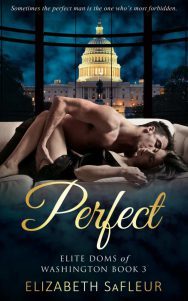
But what I want to talk about today isn’t so much fictional second chances, but real life ones, though if you are looking for a fun foodie romance all about a second chance career, I highly recommend the hilarious Nuts by Alice Clayton.
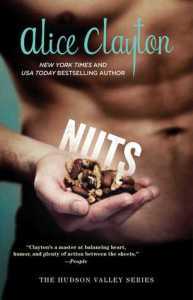
I’m going to focus on my own second chance career as a writer, which started off when I was flailing my way through one of the worst time periods of my life: law school. When I was in college, I thought I knew everything about everything, including what I wanted my future job to be. I did consider applying to journalism schools, because I’d been writing letters to the editor throughout my teens, getting them published everywhere from The New York Times to Vogue, but because I thought I would be the next big activist lawyer type, I focused on law schools. Also, I was 19 and 20 when I was applying, because I graduated from college in three years and my birthday is in November, which in hindsight at 40 years old seems very young to have to know what I want to do for the rest of my life.
So there I was at one of the most prestigious law schools in the country, NYU Law, and I was miserable. I felt totally outclassed by my peers and kept falling farther and farther behind on my schoolwork. I was living off student loans in a dorm so I couldn’t foresee how I would be able to ever afford to leave, since I didn’t have any savings. I wound up slogging through the next three years, but using my newfound enthusiasm for indie bands and musicians as a way to escape from what increasingly felt like an utterly wrong fit.
I had been reading erotica since college, but one day I decided to see if I could write my own. I had no fiction writing background and had never even considered writing short stories before; I was more of the impassioned, fiery, opinionated essay writing type. I saw a call for submissions for an anthology about celebrity sex fantasies called Starf*cker and went about crafting a story based on my own crush on a certain famous figure which became my first written and published erotica story, “Monica and Me” (you can listen to it on The Kiss Me Quick’s podcast).
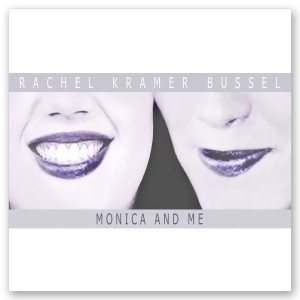
“Monica and Me” image from The Kiss Me Quick’s podcast
Around this time, just as that story was being submitted, I realized that the jig was up, and law school wasn’t for me. In 1999, at the end of my third year, when I should have been graduating, I slunk into an administrator’s office and confessed that after dodging my classes and basically flunking out, I would be taking a leave of absence. I never went back.
From there, I went on to write more short stories, which led to be asked to co-edit and then edit anthologies. At first, those books were conceived of by publishers who would present possible subjects such as spanking or exhibitionism and voyeurism, and later, I started pitching my own anthology ideas.
What started on a whim eventually became my second chance career, and even led to a full-time job when an adult magazine editor in chief was looking for a new senior editor, and approached me about it. At the time, I was making do as a typist at an insurance agency, an utterly mind-numbing job that left me feeling utterly bored.
Over the next seven and a half years, I learned a ton about writing, editing and publishing at that job, while also delving into new projects, such as writing a nonfiction sex column for famed alt weekly The Village Voice and running an erotic reading series.
But even though I loved all these opportunities, I carried around a huge amount of guilt about dropping out of law school. I felt like it was this giant black mark not just on my finances (I emerged with over $150,000 in student loans, and while I don’t have the exact amount I paid over the next 14 years, I’d estimate that Sallie Mae ultimately got around twice that from me in payments), but also on my reputation. No matter what I achieved in my writing career, whether bylines or awards or speaking engagements or packed rooms full of people at readings or new books published, I felt like a failure. That only started to ease once I finally did pay off those loans in 2013, with some help on the final payments from an inheritance from my grandmother.
Even now, I still sometimes wish I could go back in time and get that degree, not because I wish I had stayed on that path and become a lawyer, but because then I would feel like I had accomplished what I had set out to do. I’ll never know what opportunities that would have led to, but I do think dropping out had a silver lining, because it made me that much more dedicated to my new career. I threw myself into writing, editing and promoting my work with gusto. I said yes to almost any opportunity to do live readings, to write for new publications, both paid and unpaid, to work with various publishers.
This year all of those skills came in handy when I faced a major depression for several months, slogging through each day listlessly. I was stuck mentally, emotionally and, it seemed, in my career, which didn’t feel like it was moving forward in any way. I worried each month that I wouldn’t have enough money to pay the rent, and didn’t know what to do. Eventually, I asked those closest to me for help, not with my mental health issues, but with potential jobs.
With some guidance from my therapist and my depression naturally running its course, life started to seem brighter and a bit more worth waking up for, and those friends I asked for help have launched me into what I consider my next second chance writing career, as a part-time copywriter for a retail company. At first, I felt like I was giving up my freelance writing life that I’d built up since my magazine job ended in 2011, but over the past few months, I’ve discovered that I actually enjoy copywriting and geeking out about marketing. Contrary to my concerns that I was unfit for office life after working from home for so long, I love having coworkers I can turn to with questions and get an immediate, face to face answer. I’ve also started doing entertainment blogging for a site called OMJ (Oh. My. Jersey.), which has provided its own learning curve, but also showed me a whole new way of being a blogger I’d never considered before.
My point in sharing all this is that it’s never too late to start writing, or return to writing, or try a new way of writing. Maybe you’ve written technical manuals but want to try writing a mystery. Or maybe, like science writer Emily Nagoski, author of the much buzzed about sexuality tome Come As You Are, you’ve also got a romance novel in you. Nagoski, writing as Emily Foster, has a new romance novel out called How Not to Fall that I’m excited to take to the beach with me next week while I’m on vacation.
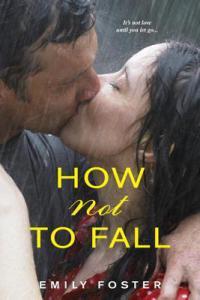
Or what about Jill Kargman, who prior to 2015 was primarily known as an author of novels like Momzillas, but has now parlayed that world of ultra rich mommies into one of the most hilarious shows on TV, Bravo comedy Odd Mom Out, which she also stars in? Talk about a second chance career!
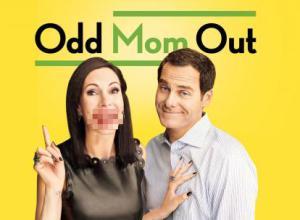
I had no idea what would happen when I left law school, or when I got laid off from my magazine editing job, or when I started exploring copywriting, or at umpteen other points along my career journey. How could I have? But taking those leaps, some by choice, others by necessity, has helped get me where I am today. I didn’t have a game plan when I wrote that first story; I never said “I want to edit dozens of anthologies.” I did it all one step at a time, and I’m still doing it one step at a time, as I assess and measure and experiment and forge ahead with each new essay, article, short story and anthology.
I often find that prospective authors want a blueprint to follow, a mapped out route to writing success, but alas, there is none, because each of our journeys are different. Just as nobody can tell you exactly how to write (in my opinion), no one can tell you what chances you should be taking. That you have to figure out for yourself.
I’ll leave you with a quote from one of my favorite books I’ve read this year, the essay collection/memoir You’ll Grow Out Of It by Jessi Klein, a comedian and head writer for Inside Amy Schumer.
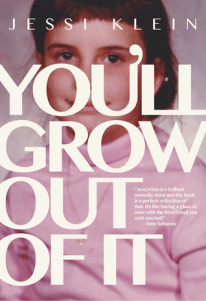
She has a chapter titled “How I Became a Comedian” which is actually a pretty serious chapter, about how we can wait and wait and wait, sometimes forever, for our big breaks, so often held back by our own fears, but that at a certain point, we have to decide whether to create our own chances, or keep on waiting for some mythical future time when we feel “ready.” Klein writes of doing her first standup comedy gigs after longing to do so for years: “The fear of trying stand-up and the fear of not trying stand-up were locked in an endless stalemate, where both sides made convincing arguments and both sides agreed it would be a good idea if instead of making a decision I just sat on the floor of the crap apartment Pete and I shared and ordered huge amounts of truly terrible Indian food.” Her path meandered toward her eventual success, including turning down a stint writing for Late Show with David Letterman in large part because her dad said to her of the thirteen-week offer, “Well, that doesn’t sound like much of a job at all.”
Contrary to my post’s headline, I don’t have a surefire route to instant writing success, because there isn’t one. I’ve done it in my own roundabout way, not by writing novels as so many of my peers have done, but by writing and editing short stories. That’s one path, the one that has worked for me so far, because it’s something I love doing even after 17 years. I think the key to that success has been being willing to adapt and grow and take risks and, via trial and error, figure out where to best focus my skills, time and energy.
If you take anything away from my words, I hope it’s that whether your thing is writing or comedy or athletics or art, you will never regret going for it. You won’t regret giving yourself a second or third or fourth or thousandth chance, but it’s very likely that you will regret never taking that chance in the first place.
Visit Lady Smut all next week for more on Elizabeth SaFleur’s new novel Perfect and second chances.
Rachel Kramer Bussel (rachelkramerbussel.com) has edited over 60 anthologies, including Best Women’s Erotica of the Year, Volume 1, Come Again: Sex Toy Erotica, Begging for It, Fast Girls, The Big Book of Orgasms and more. She writes widely about sex, dating, books and pop culture and teaches erotica writing classes around the country and online. Follow her @raquelita on Twitter and find out more about her classes and consulting at eroticawriting101.com.





